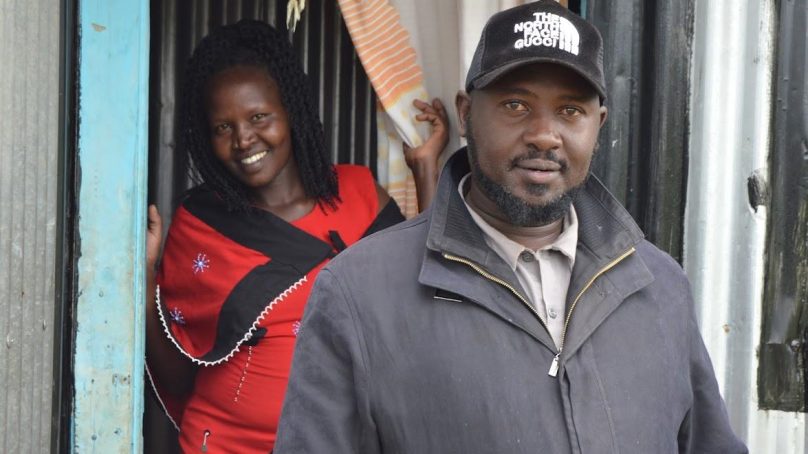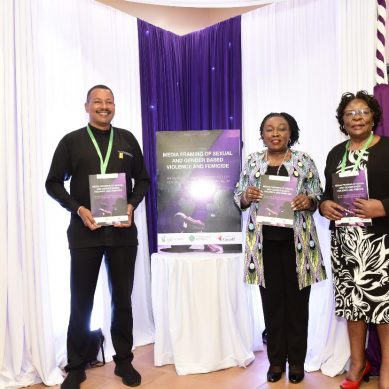
When you visit the homestead of Mr and Mrs Stephen Simpai in Narosura area, Narok South Sub County, you can hardly imagine the horrible life they lived two years ago. Alcoholism and domestic violence reigned as poverty was the flipside of their household.
The wife Linda Simpai welcomes us with a broad smile – the kind that reveals a happy couple.
After engaging the couple, we realised how dark life was before World Vision introduced a programme aimed at boosting the livelihoods of the locals in Narosura and Loita wards of Narok County two years ago.
Simpai, was once a habitual drunkard, who used every cent he earned on cheap illicit alcohol. The alcohol did not only compromise his health and productivity but was also a threat to his family as he kept battering his wife in front of his young children.
“I was a very violent person. Often, I would come home drunk and start fighting my wife and children over nothing. There are days my wife would be called to pick me on the roadside. I had lost hope in life,” he recalls.
His wife reiterated how dark life was because she was the sole breadwinner of her young family. She would struggle doing casual work to afford food for her husband and two children.
“I would be called by my neighbours to pick up my drunk husband. I endured this kind of a life for five years,” Linda says.
However, things changed after the husband was invited to attend an Empowered World View (EWV) training organised by the World Vision, an international nongovernmental organisation. He had been chosen as one of the champions in his home area.
He confessed that the programme helped in transforming him, after which he stopped drinking alcohol and concentrated on providing for his family. He was able to appreciate his wife and together they sat down and came up a plan that prioritised poultry farming, maize farming and cattle keeping.
Some of the key aspects he learnt in EWV is that he had so much underutilised resources that if exploited could earn him a decent living. He realised he had enough land and water that if well utilised could give him a decent income.
“My wife and I planted maize in our one-acre piece of land, which produced four bags. Through the income I started poultry farming in collaboration with my wife. I am very grateful to World Vision for bringing the EWV project to us.”
Currently, the couple has 23 chicken and one cow that they bought from the returns from their maize farming business. The couple has been able to build a permanent house after years of living in a grass-thatched mud house.
Unlike before when his children feared relating with him, Simpai said his wife and children are his best friends as they share a lot of fun together.
“EWV has taught me to appreciate my family. I take my family for outings where we go to play and relax as a family. This has revived my spirit and I am a completely a changed person,” Simpai adds.
His diet and health have also improved as the family can afford a well-balanced diet every day.
Those who knew Simpai before he was transformed also attested to the transformation the family has undergone after the breadwinner embraced his family responsibilities.
One of his neighbours Daniel ole Kileteny lauded the EWV programme that had empowered Simpai to be a productive man in the society as he was a daily drunkard who seemed to have lost hope in life.
“It was not abnormal to find him lying beside the road and in trenches, unable to walk home. His wife would struggle to raise their two children and sometimes you could hear her screaming for help when assaulted by the husband,” he recalled.
Ole Kileteny lauded the EWV program and called on World Vision to extend the program to many homes to empower families that have lost hope in life.
The World Vision project intended to build household resilience in vulnerable environments.
- A Tell Media / KNA report / By Ann Salaton







